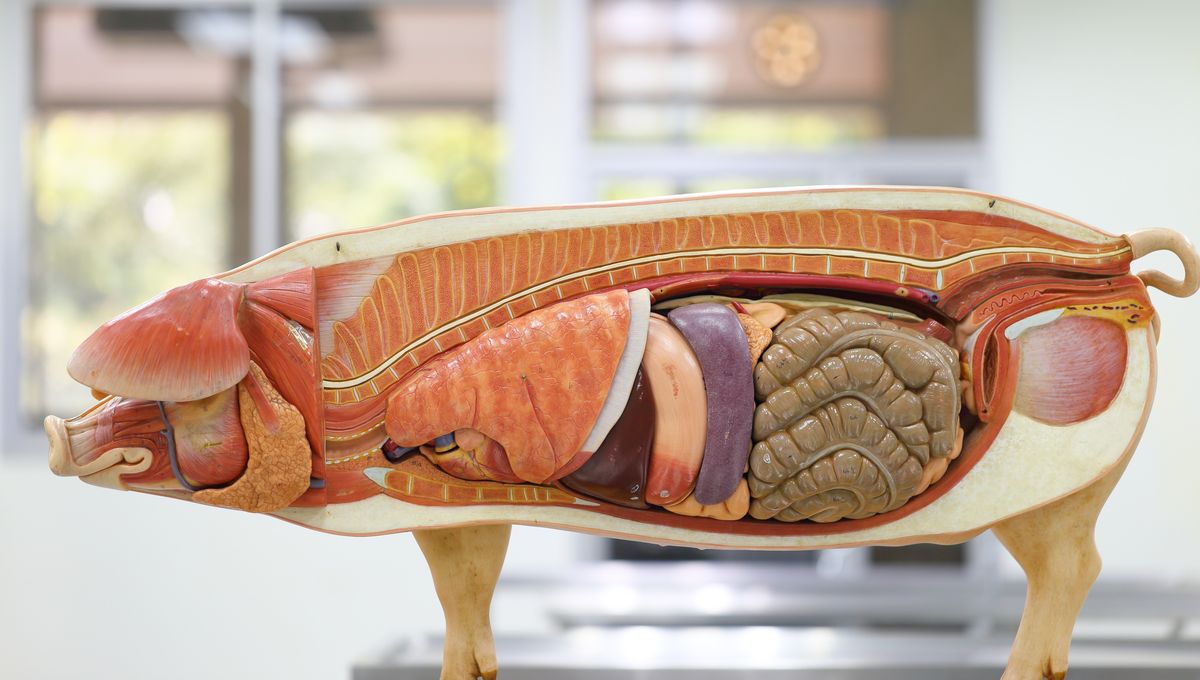
Researchers have made significant strides towards restoring brain function after someone has suffered a sudden cardiac arrest. The advancements came after Chinese scientists revived the brains of pigs that had gone without blood circulation for nearly an hour, and the secret to their success came from an unexpected source – the liver.
Sudden cardiac arrest (CA), the unexpected cessation of the heart’s function, is a major public health issue across the world. Each day, around 1,000 people are affected in the US alone.
When someone’s heart stops, it’s a race against time to revive them. Every second counts in this situation, as even a few minutes without a blood supply can cause severe and irreversible brain damage. And even though there have been advancements in resuscitation and life support techniques, the survival rate for people suffering a CA is low (between 8 and 23 percent) due to shock and brain injury.
Now, however, researchers have found a way to use the liver to protect the brains of people who have experienced a CA. The results greatly expand the amount of time medical responders could have to resuscitate a patient, possibly saving lives in the future.
In their latest study, a team led by Xiaoshun He from Sun Yat-Sen University in China examined the brains of 17 lab-raised Tibetan minipigs in an effort to understand how the liver influences brain recovery after ischemia from a CA.
The process was a little gruesome. The researchers harvested the pigs’ brains after the animals were subjected to different levels of ischemia for 30 minutes. One group was only subjected to brain ischemia, while the other had their livers subjected to it as well. There was also a control group that experienced no ischemia.
Examination of the harvested brains revealed that the group that had experienced brain and liver ischemia appeared to show the worst damage, while the control group showed the least.
Following this, the team attempted to revive the brains through a basic life support system consisting of an artificial heart and lungs. One group also had a healthy pig’s liver incorporated into the life support system in a technique known as normothermic machine perfusion (NMP). This machine keeps organs at a normal temperature and supplies them with oxygen and nutrients in an attempt to restore cell functioning. But in this instance, the NMP was assisted by the liver.
Amazingly, the team found significant differences in brain recovery depending on whether they were connected to the liver. Those that were not supported by this organ experienced a short revival of electrical activity around 30 minutes after being on the support system. This activity declined over a few hours. In contrast, the brains that were connected to the liver system showed continued electrical activity for up to six hours once they were revived.
The brains that were connected to the liver-assisted perfusion also showed lower levels of S100-β protein, a biomarker of brain injury, and their cerebral cortices and hippocampi appeared healthier.
The researchers also experimented with different time delays for the liver-assisted system to see how long the brains could last before they became irreversibly damaged. The brains were connected to the system for intervals varying from 30 minutes, to 50 minutes, 60 minutes, and 240 minutes. They found that the brains could still recover even when they hadn’t had blood flow for 50 to 60 minutes, with 50 minutes being the most optimal time.
“[T]he results from the current study showed the crucial role of the liver in the pathogenesis of post-CA brain injury. These findings shed light on a novel cardio-pulmonary-hepatic-cerebral resuscitation strategy,” the team conclude in their study.
This new understanding of the liver’s role of the protecting the brain after it experiences ischemia may well open up new pathways for helping human patients.
“Therefore, the insights gained from the current and future studies have the potential to enhance survival and improve outcomes for patients experiencing CA.”
The study is published in EMBO Molecular Medicine.
Source Link: Pigs' Brains Revived An Hour After Death Due To New Insights Into The Power Of The Liver